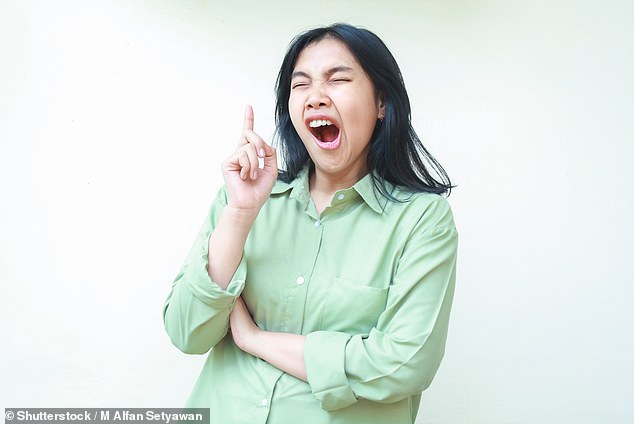Most people associate sleepless nights with feeling grumpy the next day.
But pulling an all-nighter could actually reverse depression for several days, a new study suggests.
Sometimes, even though the body is physically exhausted, the brain feels happy and crazy, that feeling of fatigue and tension that some people experience.
Experts say this could be due to dopamine, a chemical in the brain that plays a role in pleasure and reward.
According to researchers, the effect of a missed night of sleep is like a powerful antidepressant that maintains mood for several days.
Pulling a sleepless night can reverse depression for several days, new study suggests
In the study, mild and acute sleep deprivation was induced in mice before their behavior and brain activity was analyzed.
Not only was dopamine release increased during the period of acute sleep loss, but synaptic plasticity (the ability of neurons to change their connections) was also enhanced, literally rewiring the brain to maintain a bubbly mood for the following days.
The findings, carried out by neurobiologists at Northwestern University, could help scientists better understand how moods change naturally.
They could also lead to a more complete understanding of how fast-acting antidepressants such as ketamine work and help researchers identify previously unknown targets for new antidepressant drugs.
Author Professor Yevgenia Kozorovitskiy said: “Chronic sleep loss is well studied and its detrimental effects are widely documented.
“But brief loss of sleep, such as the equivalent of a student having a sleepless night before an exam, is less well understood.
“We found that sleep loss induces a powerful antidepressant effect and rewires the brain.”
“It’s an important reminder of how our casual activities, like an all-nighter, can fundamentally change the brain in just a few hours.”
But researchers warn against starting to have sleepless nights in order to brighten up a blue mood.
Professor Kozorovitskiy said: “The antidepressant effect is transient and we know the importance of a good night’s sleep.
“I would say it’s better to go to the gym or take a nice walk. This new knowledge is most important when it comes to matching someone with the right antidepressant.
The researchers found that after a sleepless night, the mice’s behavior changed to become more aggressive, hyperactive and hypersexual, compared to animals that experienced a typical night’s sleep.
The activity of dopamine neurons, responsible for the brain’s reward response, was measured and the researchers found that activity was higher in the animals during the brief period of sleep loss.
They also found that the antidepressant effect persisted except when dopamine responses were inhibited in the prefrontal cortex, at the front of the brain.
Professor Kozorovitskiy said: “This means that the prefrontal cortex is a clinically relevant area when searching for therapeutic targets.”
“But it also reinforces the idea that has been developing recently in the field: dopamine neurons play very important but very different roles in the brain.”
“It’s not just about this monolithic population that just predicts rewards.”
Most behaviors, such as hyperactivity and increased sexuality, disappeared within hours after acute sleep loss, but the antidepressant effect persisted for a few days, according to the study published in the journal Neuron.
#Pulling #sleepless #night #reverse #depression #days #study #finds
Image Source : www.dailymail.co.uk

